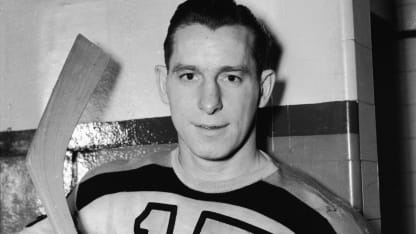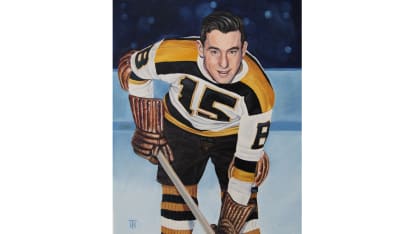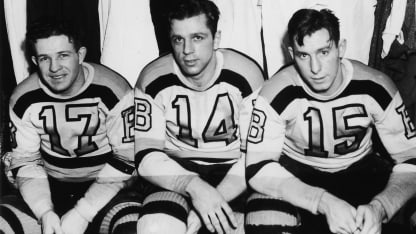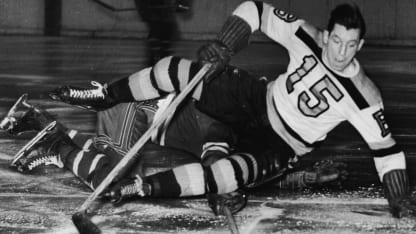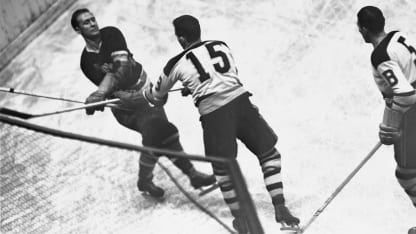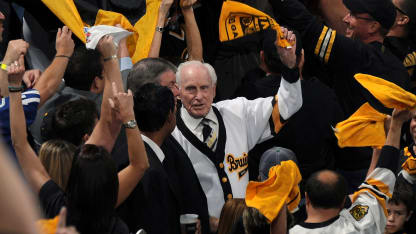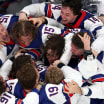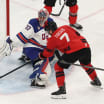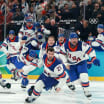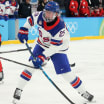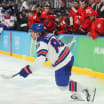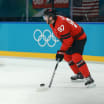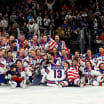"Milt Schmidt was the [Mark] Messier of his era, and that's really giving a lot of credit to Messier," said Dick Johnson, a sports historian and curator of The Sports Museum of New England.
For all of Schmidt's career highlights - and he had an abundance of them, as a Bruins player, coach and general manager - his most transcendent moment had nothing to do with Stanley Cup heroics or personal achievements, but with the noble and patriotic act of going to war.
It came on Feb. 11, 1942. The Bruins were playing their archrival, the Montreal Canadiens, at Boston Garden. Schmidt, as usual, was centering the so-called "Kraut Line" with his fellow Kitchener, Ontario, mates Woody Dumart and Bobby Bauer. They were 1-2-3, respectively, in NHL scoring in 1939-40, an unprecedented feat, and two years later they outdid themselves, enlisting together in the Royal Canadian Air Force. Now they were playing their last game for the Bruins before going off to fight the Germans. The Bruins defeated the Canadiens 8-1, the "Kraut Line" accounting for 11 points, and at game's end the Bruins honored Schmidt, Dumart and Bauer, who were given their paychecks for the rest of the year, plus a bonus, before players from both the Bruins and the Canadiens lifted the three of them up, literally and figuratively, an impromptu salute to their countrymen, and why not?
MILT SCHMIDT CAREER TOTALS | View Full Stats
Games: 776 | Goals: 229 | Assists: 346 | Points: 575
How often do men leave the rinks of the NHL to fight in the biggest and deadliest war in history?
"I cried," Schmidt said. "It just goes to show that you can have pretty bitter enemies out on that ice, but after the game is over, we're all friends, and I think that has a lot to say about the people who play the game."
Milt Schmidt had a career out of a hockey fairy tale, not least because he spent all of it with one team. He was born to German immigrants in Kitchener, a city that jettisoned its previous name - Berlin - after the outbreak of World War I. Schmidt fell in love with skating and hockey, a life direction that did not endear him to his elementary school principal, who called him in more than once to discuss his studies, concerned that he was spending more time on the ponds than he was with the books.
